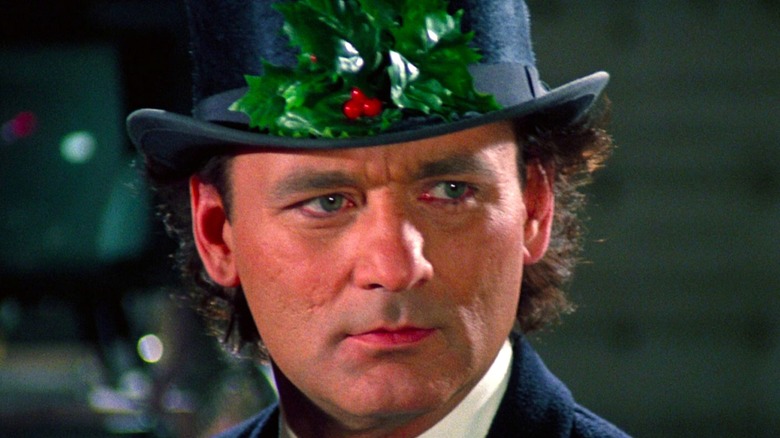
Most winter holiday viewing is drawn from relatively narrow lists of familiar favorites, to the point that even several of our supposedly "alternative" or "contrarian" choices have become well-worn selections. Only particularly crotchety curmudgeons continue to argue against acknowledging "Die Hard" or "Gremlins" as Christmas films anymore, and it's no secret by now how many of Shane Black's scripts are set during Christmas.
But there remain obscure oddballs of holiday movies, often available exclusively via VHS or online bootlegs, whose observances of seasonal festivities are a bit more morose than most. If they are comedies, their punchlines hit harder than the more broadly upbeat all-ages fare.
Not all are guaranteed to be good, but each is unique. While some of you might recall scattered moments from a number of these films, it's unlikely that any of you have sampled repeat viewings of more than a few of them.
It Happened One Christmas
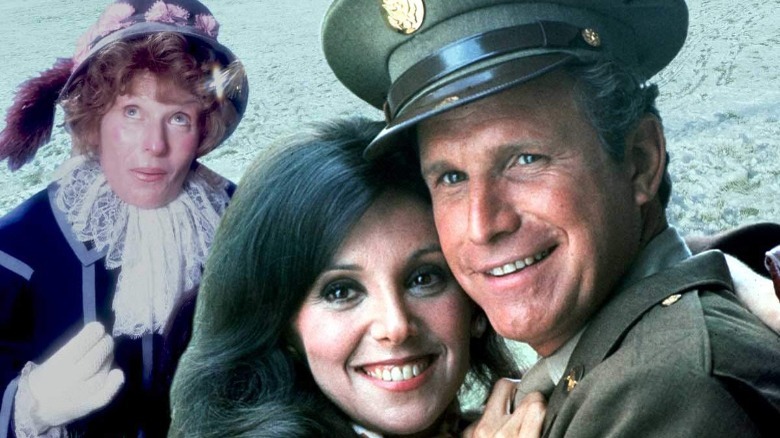
Before Frank Capra's 1946 "It's a Wonderful Life" became a holiday television mainstay, "The ABC Sunday Night Movie" aired a made-for-TV remake, "It Happened One Christmas," in 1977. While it retained almost all of the original's script, it not only recruited Orson Welles to play monopolist slumlord Mr. Potter, but also gender-flipped its central cast.
Marlo Thomas plays Mary Bailey, inheritor of Bailey Bros. Building & Loan, with Cloris Leachman as Clara (Clarence in the original) Odbody, Angel Second Class, and Wayne Rogers as Mary's husband, George Hatch, who joins her younger brother Harry (future mockumentarian Christopher Guest) in serving during World War II.
Even when Thomas and Welles recite Jimmy Stewart and Lionel Barrymore's lines word-for-word, the inherent shift in their dynamic, stemming from Mr. Bailey becoming Mrs. Bailey-Hatch, works with their subtly nuanced performances to elevate this remake. Stewart's George Bailey rarely shies from venting his blustery disgruntlement over how fate has seemingly conspired to trap him in Bedford Falls, but Thomas' Mary Bailey elicits more sympathy through her indefatigably chipper convictions, which crack only twice during this film.
Mary's plight underscores how routinely women have been forced to defer their dreams, which might be why Welles' Potter appears to admire (and even pity) Mary, even as he remains unwaveringly determined to destroy her.
An American Christmas Carol
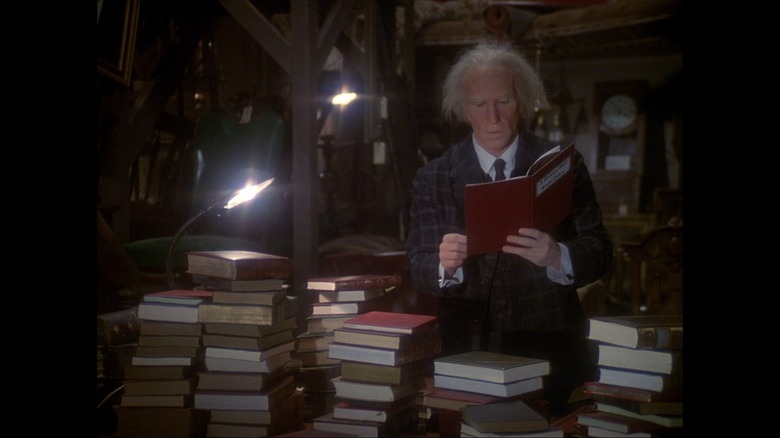
Although Charles Dickens' 1843 novella, "A Christmas Carol," began as a contemporary critique of how Christmas was celebrated, it ironically became its own Christmas tradition, with more movie and TV adaptations than on-screen retellings of the birth of Christ himself.
"An American Christmas Carol" updates its setting from 19th century London to Concord, New Hampshire, in 1933 during the Great Depression, when local tycoon Benedict Slade (Henry Winkler, wearing admittedly bad old-age makeup) makes his rounds on Christmas Eve, repossessing all the property whose payments remain delinquent.
It's great seeing Winkler receive his due as a dramatic actor on HBO's "Barry," but 1979's "An American Christmas Carol" shows he had a lot on his mind even when he was the Fonz on "Happy Days." What makes Slade a distinctly American Scrooge is both his by-your-bootstraps philosophy and his overriding focus on efficiency and innovation. As an orphan, Slade is taken in by the owner of a woodworking business with many employees, to whom he's initially grateful, which makes it even more cold-blooded when Slade betrays his adoptive father.
Slade winnows the business' employees by installing an assembly line to compete with mass-manufacturers, and charges his customers installment payments, making him directly accountable for the Depression, which I suspect resonated during the "malaise" of the Carter presidency.
Diner
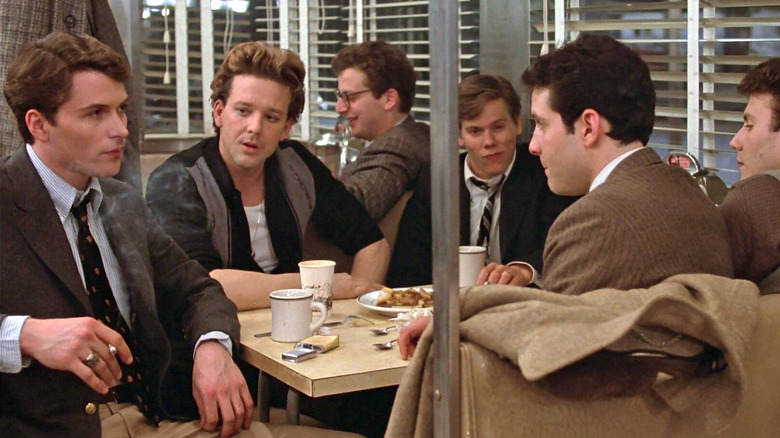
In 1983, "A Christmas Story" acknowledged, however briefly, that Christmas is just another day of the year for plenty of people, such as the Chinese restaurant that was still open to serve a last-minute duck dinner to substitute for the turkey that Ralphie's family lost to invading dogs. In 1982, writer-director Barry Levinson's autobiographical dramedy "Diner" deftly explored the vaguely dissociated sense of experiencing a season of festivities whose most widely recognized cultural traditions and celebrations are not your own.
We're introduced to half a dozen longtime pals, all played by appealing young actors on the launchpad of imminent fame, hanging out at the same Baltimore diner in the winter of 1959. By the film's conclusion, we've found out that all but two of the friends (Kevin Bacon and Tim Daly) are Jewish.
Although Christmas obviously holds no religious significance for the Jewish folks in this circle of friends, it nonetheless coincides with other transitions in their lives, from the close of the 1950s to the end of their shared adolescence. From Shrevie (Daniel Stern) letting his obsession with record collecting override his marriage to Beth (Ellen Barkin), to Boogie (Mickey Rourke) getting so deeply in gambling debt that his bookie starts issuing threats, all these guys are overdue to grow up.
Trading Places
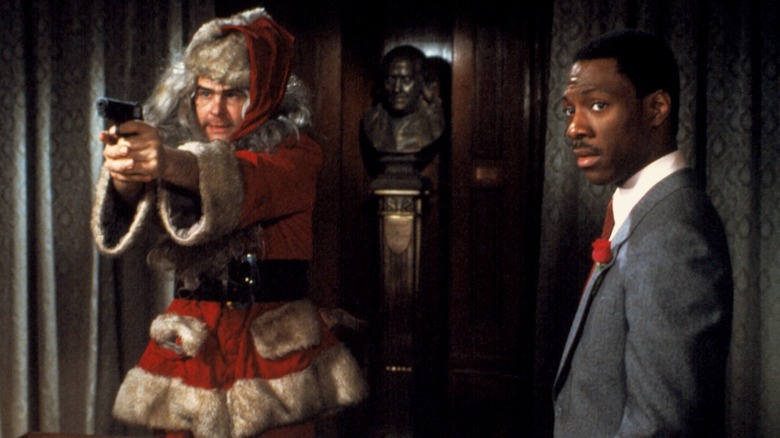
The comedic genius and compelling personal magnetism of this film's young-gun co-leads has blinded a lot of its fans to the fact that 1983's "Trading Places" is actually a brazenly anti-Christmas movie, to a degree that only the Reagan '80s could deliver.
This contemporary twist on Mark Twain's "The Prince and the Pauper" presents financial masters of the universe Randolph and Mortimer Duke (Ralph Bellamy and Don Ameche) manipulating the law and destroying a man's life simply to settle a $1 wager on whether nature or nurture matters more in determining a man's character.
It's hard to feel aggrieved when this bet humbles casually racist son of privilege Louis Winthorpe III (Dan Aykroyd), but any sense of satisfaction we might derive from seeing struggling street hustler Billy Ray Valentine (Eddie Murphy) acquire Winthorpe's job and property is curtailed when Valentine suddenly kicks out all of his old friends, whom he'd invited to party at Winthorpe's home. Winthorpe's butler Coleman (Denholm Elliott) sadly observes how quickly Valentine's newfound fortune has affected his outlook.
Even Winthorpe and Valentine's team-up and turnabout play against the Duke brothers hinges not on thawing their hardened hearts, but on combining their respective insights to out-Scrooge the remorseless old schemers through the most fascinatingly didactic economics tutorial ever set to celluloid.
The Box Of Delights
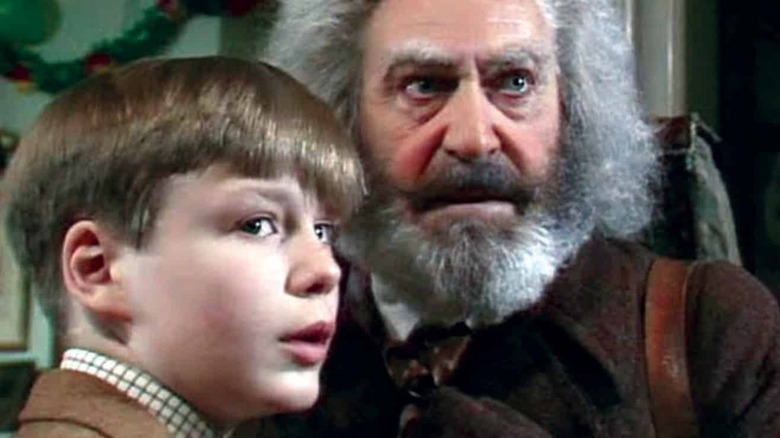
In 1984, the BBC aired a six-part TV miniseries adaptation of John Masefield's 1935 fantasy novel, "The Box of Delights," combining traditional Christmas trappings with English folklore, pagan mythology, and obscure history, plus pre-CGI special effects and hand-drawn animated sequences that still hold up to modern standards.
In 1934, bright-eyed Kay Harker rides the train from boarding school to celebrate Christmas at his family estate when a chance encounter with vagabond-looking Punch-and-Judy puppeteer Cole Hawlings (Patrick Troughton, the second "Doctor Who") leaves Kay and his friends, the equally adventurous Jones children, safeguarding Hawlings' "Box of Delights" from rival magician Abner Brown. Kay learns the backstories of Hawlings and his box through medieval and pre-Christian history, and uses the box's powers to shrink, shape-shift, fly, and travel back in time.
Brown's animalistic and mystical henchmen are imaginatively realized through eye-catching costumes and sinister performances, suggesting they represent far darker forces without being too scary for younger viewers. Meanwhile, Troughton's mischievous and mysterious Cole Hawlings evokes the best of his "Doctor Who" persona, neither too sinister nor too safe for curious children, with a twinkle in his eye that makes him irresistibly disreputable.
The Night They Saved Christmas
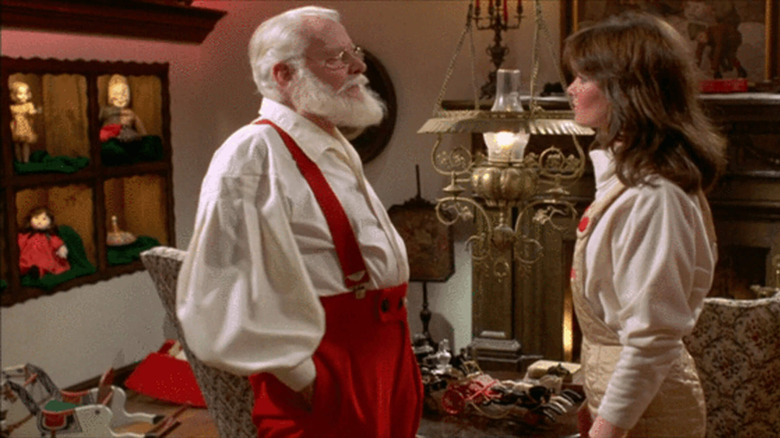
Bill Murray's 1988 "Scrooged" (see below) opens with a satire of that decade's violent made-for-TV movies, as Lee Majors plays himself in "The Night the Reindeer Died," about a terrorist siege of Santa's workshop.
"The Night the Reindeer Died" was a never-produced spoof, but "The Night They Saved Christmas," starring former "Charlie's Angel" Jaclyn Smith, was an actual TV movie that premiered on ABC in 1984 about how deep-sea oil-drilling at the North Pole threatened to destroy Santa's home.
Casting Art Carney as Santa and June Lockhart as Mrs. Claus almost allowed them to salvage this film by themselves, until the manager (Paul Le Mat) of the company's search for Arctic oil hears his wife (Smith) and kids claim they visited the Clauses at the North Pole. Le Mat's boss reasons instead that rival oilmen must have drugged his family to delude them into believing such a hallucinatory fantasy.
Carney could infuse the most uninspired dialogue with wry charm, but even he's powerless against a plot that constantly pulls away from the story's magical aspects to focus on mundane oil turf wars. Le Mat even hosts office meetings with Santa's deeply creepy chief elf (Paul Williams, presumably appearing here to add some existential holiday terror, since Krampus had yet to hit the pop culture mainstream).
Better Off Dead
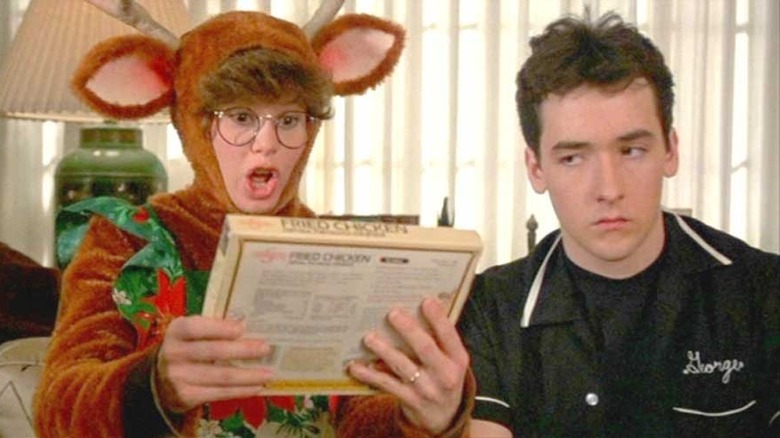
"Savage" Steve Holland composed a five-season-long tribute to hilariously unjust suffering through his 1992 cartoon "Eek! The Cat," so it makes sense that his feature film debut, 1985's "Better Off Dead," would mine the sensitive subject of teenage suicide for his signature style of absurdly morbid humor.
High school student Lane Myers (John Cusack) gets dumped by his girlfriend for the handsome, popular, and bullying captain of the ski team, who in turn unfairly denies avid and talented skier Lane a spot on the roster, all shortly before Christmas. Suffice it to say that Lane copes so poorly that "Better Off Dead" makes the excesses of 1988's "Heathers" look like a Dogme 95 production by comparison.
This film is not so much about getting through the winter holidays as it is simply surviving the seemingly interminable miseries of the middle of winter itself, and of adolescence as a whole. That said, Kim Darby ties things back into the holidays as Lane's flaky suburban mother, who dons ridiculous seasonally themed attire — her reindeer onesie echoes Ralphie's "pink nightmare" from "A Christmas Story" — to the same catastrophic effect as when she concocts progressively more grotesque (and prehensile) family meals. "Better Off Dead" both pioneers and parodies its own subgenre of teen slob comedy in the same film.
One Magic Christmas
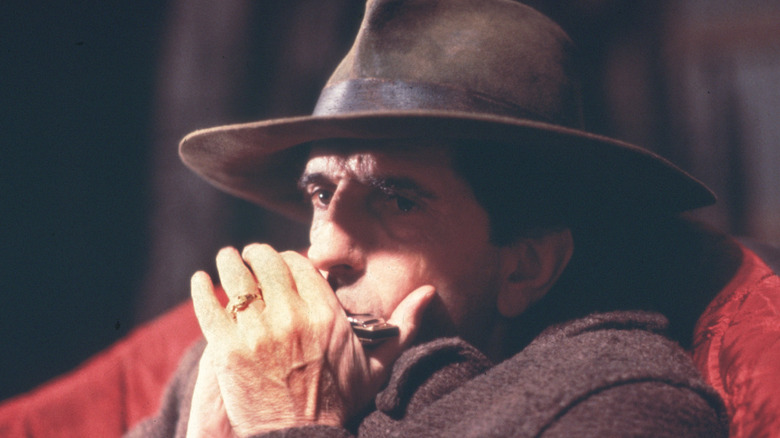
When your "Christmas miracle" movie casts Harry Dean Stanton, already 59 years old in 1985, as a trench coat-clad, harmonica-playing hobo angel named Gideon, you've already made a decision about how dark your "holiday magic" is willing to go. Indeed, this film was produced by Disney during its "Dark Ages" period, before the late 1980s saw a resurgence in its critical and commercial fortunes, so it was willing to roll the dice and take big risks. It's hard to imagine how else you'd get a Christmas film that adopts the template of "It's a Wonderful Life" and then says, "No, this isn't nearly depressing enough."
The always dependable Mary Steenburgen plays a harried working mom who's having trouble summoning holiday cheer, since she's saddled with an unemployed husband and a New Year's Day eviction deadline from her house. And that's the good news, as "One Magic Christmas" subjects her to suffering just shy of "The Book of Job."
The first time I saw this film, I found myself repeatedly asking how much worse they could make things for this poor woman, but that actually serves to make the miraculous turnaround all the more rewarding, as she takes to heart the message that even the simplest of kindnesses can make a bigger difference in the world than we'll know.
Santa Claus: The Movie
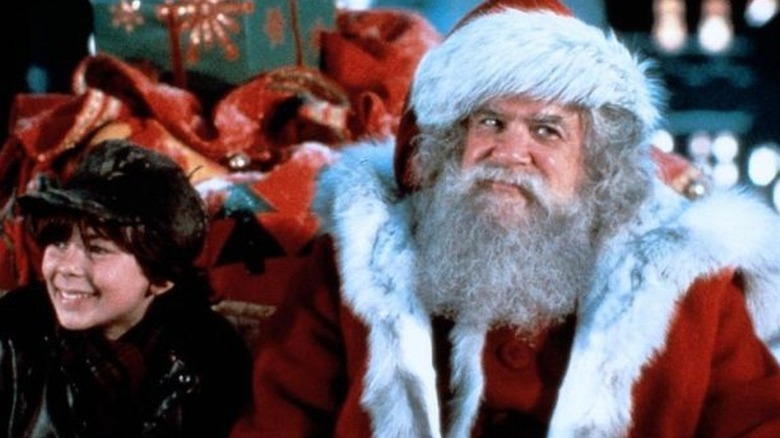
In 1985, father-and-son producers Alexander and Ilya Salkind attempted to do for Santa Claus what they'd done for Superman in 1978, supervising a mythically otherworldly origin story set in a land of cold whiteness, followed by a brisk montage sequence touching on all the most familiar tropes associate with the character, capped off with a wet trumpet-fart of a third act that shoved our titular hero to the side for a comically egomaniacal villain and his bumbling sidekick.
Because while both "Superman" and "Santa Claus: The Movie" did well in casting camera-ready leads, with David Huddleston — the actual "Big Lebowski" of the eponymous Jeff Bridges film — tossing off robust choruses of "HO HO HO" convincingly as Santa, their archenemies delivered those films' command performances.
John Lithgow plays the shamelessly profiteering B.Z., whose company produces toys even more dangerous than Dan Aykroyd's Irwin Mainway on "Saturday Night Live." While this movie as a whole is charitably middling at best, Lithgow invests his acting with such darkly radioactive energy that he makes Al Pacino's John Milton in "The Devil's Advocate" look like Steven Wright doing stand-up by comparison. Lithgow carries this film's corpse across the finish line, delivering every line like a Make-A-Wish child is being held at gunpoint just off-camera.
The Life And Adventures Of Santa Claus & The Christmas Toy
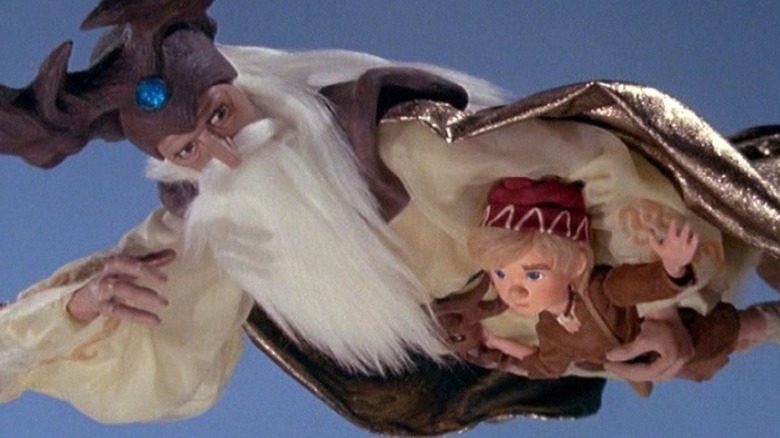
Like Disney, holiday stalwarts Rankin/Bass and Henson Associates had faded a bit from their former glories by the mid-1980s, although the obscurity of 1985's "The Life and Adventures of Santa Claus" and 1986's "The Christmas Toy" arguably owes as much to their tonal dissonance.
"The Life and Adventures of Santa Claus" was based on the 1902 children's book by L. Frank Baum, writer of "The Wonderful Wizard of Oz." While Rankin/Bass' character designs were suitably reminiscent of their sophisticated work on 1977's "The Hobbit," the TV episode-length special's stop-motion animation was a throwback to 1964's "Rudolph the Red-Nosed Reindeer," a simplistic format for such a richly mythological flashback tale, which opens with Santa's impending death.
Henson's likewise roughly hour-long "The Christmas Toy" preceded Pixar's 1995 "Toy Story" in depicting the secret lives of children's beloved playthings, when those kids weren't looking, right down to a child's previous present learning to step aside graciously for a new playroom favorite. An unnerving condition of "The Christmas Toy" was that any toy caught outside of where it was last left by a human would become frozen and lifeless forever, which Pixar couldn't beat for creepiness until ... well, the "Toy Story" sequels, admittedly.
Less Than Zero
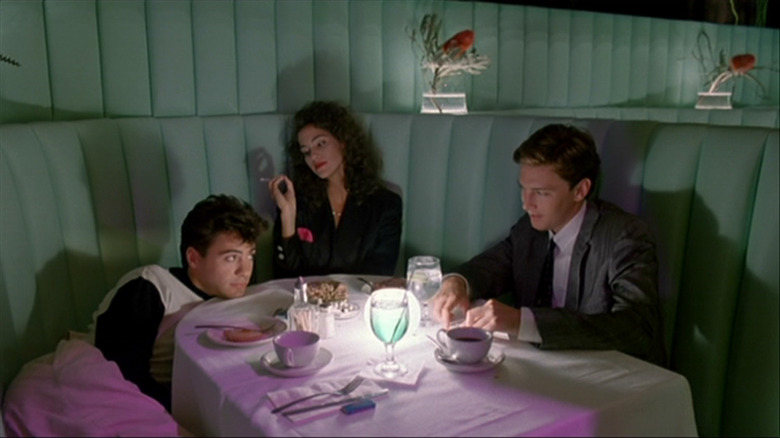
Just as "Die Hard" is the '80s action flick that embodies the spirit of Christmas, "Less Than Zero" is the '80s drama that underscores how the holiday frequently fails to live up to this spirit. The 1987 film adaptation of Bret Easton Ellis' 1985 debut novel is practically a Disney musical compared to its Brothers Grimm source material, but is satisfyingly downbeat nonetheless.
When straitlaced Clay returns home to Los Angeles for Christmas, following his first semester of college, his ex-girlfriend Blair anxiously asks if he's seen their friend Julian. Julian (Robert Downey Jr.) betrayed Clay by sleeping with Blair, and Julian is not well. Even Clay, who's known Julian all his life, doesn't yet get how unwell he has become.
Even at 22 years old, Downey's acting talent is already electric, and this film as a whole is an achingly beautiful time capsule of its decade, from Thomas Newman's ethereal synthesizer score to visuals that evoke Patrick Nagel's neon-hued prints and MTV's best-directed videos.
Just as Julian has torn his family apart, "Less Than Zero" illustrates the no-less-dysfunctional dynamics of Clay's quietly civil divorced parents, who struggle to make polite conversation between drinks during their holiday dinner. The austere fragility of Clay's family is jarringly intercut with Clay and Blair making out to rock music.
Scrooged
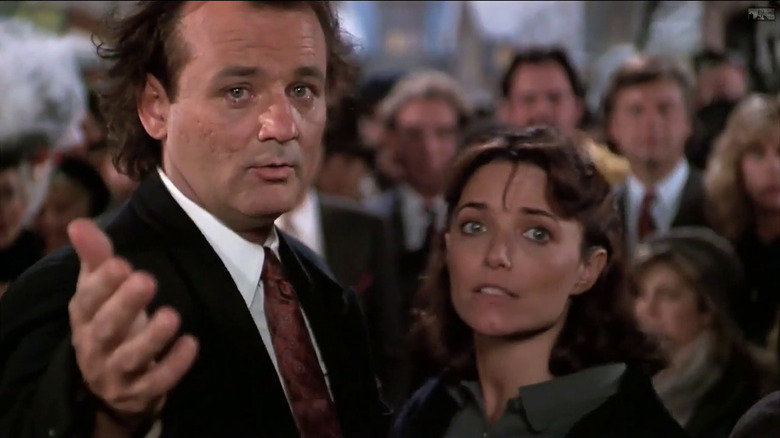
This site could run an entire article ranking the best (and worst) adaptations of Charles Dickens' "A Christmas Carol," but this author's favorite will always remain Bill Murray's 1988 "Scrooged," which updates the story by casting Murray as a soulless network television executive who's making a big-budget TV-movie version of Dickens' classic tale, without understanding any part of its message.
This film was so up-to-the-minute for its time that it can't help but feel dated now, with Mary Lou Retton cast as Tiny Tim in the film-within-a-film, which also features the Solid Gold Dancers just after their show was cancelled in real life. But in between the broad digs at the entertainment industry, Murray demonstrates a knack for grim-faced drama that had only previously been utilized by "The Razor's Edge" in 1984, and which Wes Anderson would capitalize upon from 1998's "Rushmore" forward. Strong supporting performances by Karen Allen, John Glover, Bobcat Goldthwait, and Bill Murray's three brothers can't outshine Murray himself, whose final, tearful change-of-heart speech comes across like an honestly heartfelt release of emotions that have been pent up for years.
Although both Murray's Jacob Marley-esque mentor and the Ghost of Christmas Future are rendered with palpable gruesomeness, it's the film's chillingly colorless visions of various nightmarish future outcomes that linger most hauntingly in the imagination.
Scent Of A Woman
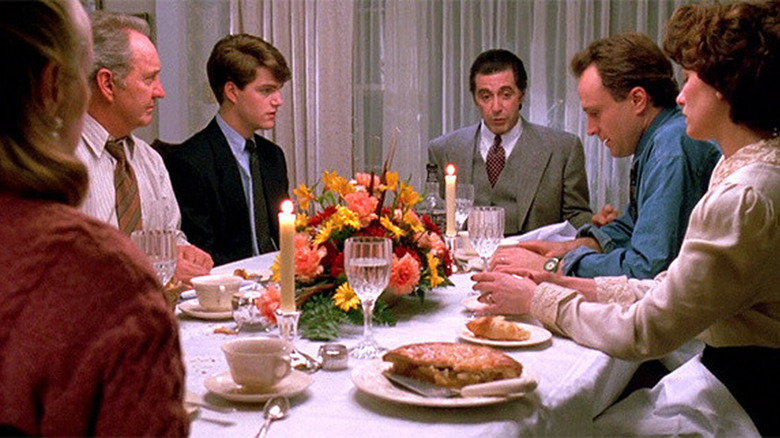
John Hughes' 1987 "Planes, Trains and Automobiles" still ranks among the best of a growing number of Thanksgiving films, but if your family is fine with edgier fare, Martin Brest's 1992 feature "Scent of a Woman" showcases Al Pacino spinning poetry out of profanity as a family's black sheep. To pay for his trip home for Christmas, prep school scholarship student Charlie Simms (Chris O'Donnell) agrees to watch blind, retired Army Lt. Col. Frank Slade (Pacino) for Thanksgiving, but Slade kidnaps Charlie for a last-hurrah trip to New York before his planned suicide.
This film's time of year wouldn't matter if Frank Slade didn't visit his brother Willie's family, with Charlie in tow, for a painfully familiar Thanksgiving dinner to anyone who's hosted loud, abrasive relatives who refuse to shut up. Richard Venture plays William Slade as exhausted with Frank's bull, but also torn up over how far his once-promising brother has fallen. So many actors in this film were mere moments from broader stardom, but it's that audacious tango with Gabrielle Anwar that makes its emotional arc plausible.
Frank's disastrous Thanksgiving dinner shows how distant his redemption remains, but in navigating a ballroom blind, dancing so well that he literally sweeps a three-decades-younger woman off her feet, Frank demonstrates what he could do, if he quit rehashing the past.
Read this next: The 15 Best '80s Comedies Ranked
The post Overlooked Holiday Movies That Are Surprisingly Somber appeared first on /Film.
0 Commentaires